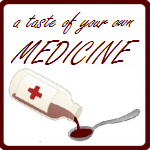 Advances in technology have not only dramatically changed health care, but have also changed the way we learn medicine. Gone are the days of carrying clunky textbooks. You can also put away your six different highlighters. Why? Because technology has become your new best friend.
Advances in technology have not only dramatically changed health care, but have also changed the way we learn medicine. Gone are the days of carrying clunky textbooks. You can also put away your six different highlighters. Why? Because technology has become your new best friend.
Having a smartphone—or better, a tablet—on hand has become an especially useful tool for navigating your studies. Here is a guide to some of the apps that I have found most valuable.
Medical
Diagnosaurus is an excellent app to help build your differential diagnosis. You should, however, think of diagnoses before you consult the app so that you get into the habit of thinking through the diseases yourself.
Eye Chart Pro is exactly what it sounds: an eye chart. It will be helpful when you realize you lost the mini eye chart that you had originally placed in your white coat pocket.
drawMD has a series of different apps that you can choose from depending on what rotation you are on, such as general surgery, OB/GYN, pediatrics and cardiology. These apps illustrate various disease processes that you can use when studying or explaining to a patient. You can draw and type on the app and even share the images. Patients will thank you when you take the time to explain their condition. For example, it’s more difficult to verbally explain how atherosclerosis damages your vessels and how a stent works than guiding patients through the images on the app.
You’ll know what the “wheel” is when you take OB/GYN. It’s a wheel to help you predict a female’s fertility and due date. Instead of having to search your white coat pockets for your paper wheel, try The Wheel HD. You’ll never have to do the math yourself and risk giving the patient a way off due date.
Anatomy is a tough course, so if you need another method to help learn structures, then try Pocket Anatomy. You can quiz yourself on anatomy wherever you are, even if you’re not in the lab. As a bonus, you don’t have to worry about getting that characteristic formaldehyde stench on you.
Epocrates is the go-to app for drugs. You can search for drugs, learn about their dosing, and study their interactions and contraindications. Now you don’t have to worry about cramming everything you learned in your pharmacology course.
The Medscape app delivers articles on medicine that are both interesting and educational. You can also use it as a reference guide to look up medical topics. This app is used by everyone from students to clinicians so if you’re not using it, you’re missing out!
Productivity
iAnnotate PDF is an efficient app to annotate lecture notes or other documents. A stylus or keyword can also be beneficial when using this app.
Penultimate is another app that is great for writing notes with a stylus. A resident recommended it because you can organize all your notes in one place and even in notebooks. You can throw away your heavy binders and not have to look for stray papers. In addition with this app, you can even make scrapbooks of your medical school adventures!
Google Drive is an easy way to create, edit and share documents. For example, you can work on your research project with the attending or share notes with classmates. I love using this app!
I wish I discovered the Anki app sooner. It is a flashcard app. You can pick from premade flashcard decks or create your own. This is a productive way to kill some time while in line for your morning coffee.
Communication
It’s hard to communicate with patients who speak little or no English. That’s when MediBabble comes to your rescue. You can use vocal and written translations in several different languages, including Spanish, Chinese and Russian. No more shrugging your shoulders and awkward looks.
I use TextMe to communicate with my colleagues. You get a free phone number and credits for texting, calling and receiving voicemails. This can be a lifesaver when your phone has poor reception inside the hospital.
Lifestyle
I open up PlayTube when I have some down time. This app links to your YouTube account so you can add or view your playlists. Even better, you can click out of advertisements right away. You can also cache some of your favorite videos so you can watch them wherever you are even without internet access.
Flipboard is advertised as “your personal magazine,” which is completely accurate. You can read and share articles from prominent magazines, creating your own customized magazine. You can read about anything from food to technology to travel.
Use Spotify if you want to stream your favorite music whenever you want. You have access to millions of songs to pick from and create your own playlist. You can even upgrade to the premium service, which gets rid of advertisements and lets you listen to music when offline.
It can be hard to keep up with everything going on inside the hospital, let alone outside. That’s when the Circa news app is essential to keeping you updated on what’s going on in your country and in the world. Like everything else these days, you can customize it and get news articles that you find the most interesting.
The way medicine is taught today is different from what our predecessors experienced. I wonder what the next generation of medical students will have at their disposal.
A Taste Of Your Own Medicine is a column that gives you a taste of medicine. It focuses on important and interesting topics relating to medicine and being a medical student.
